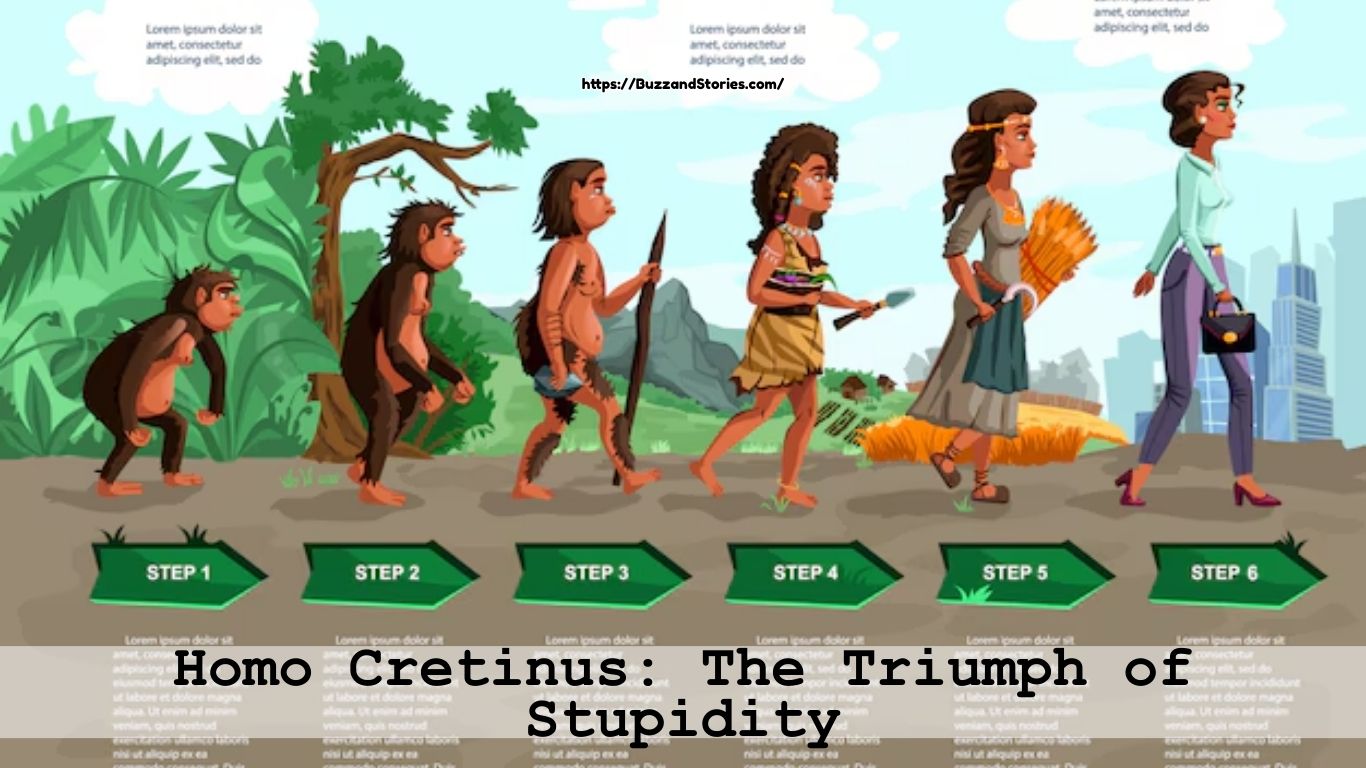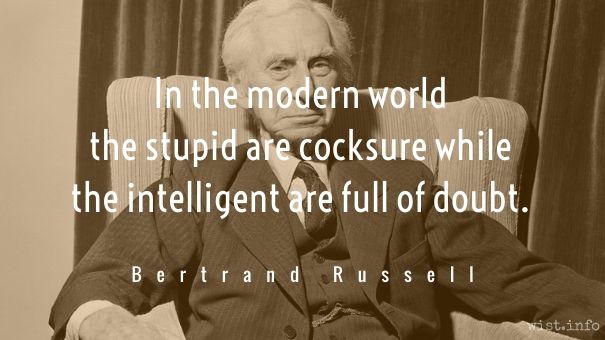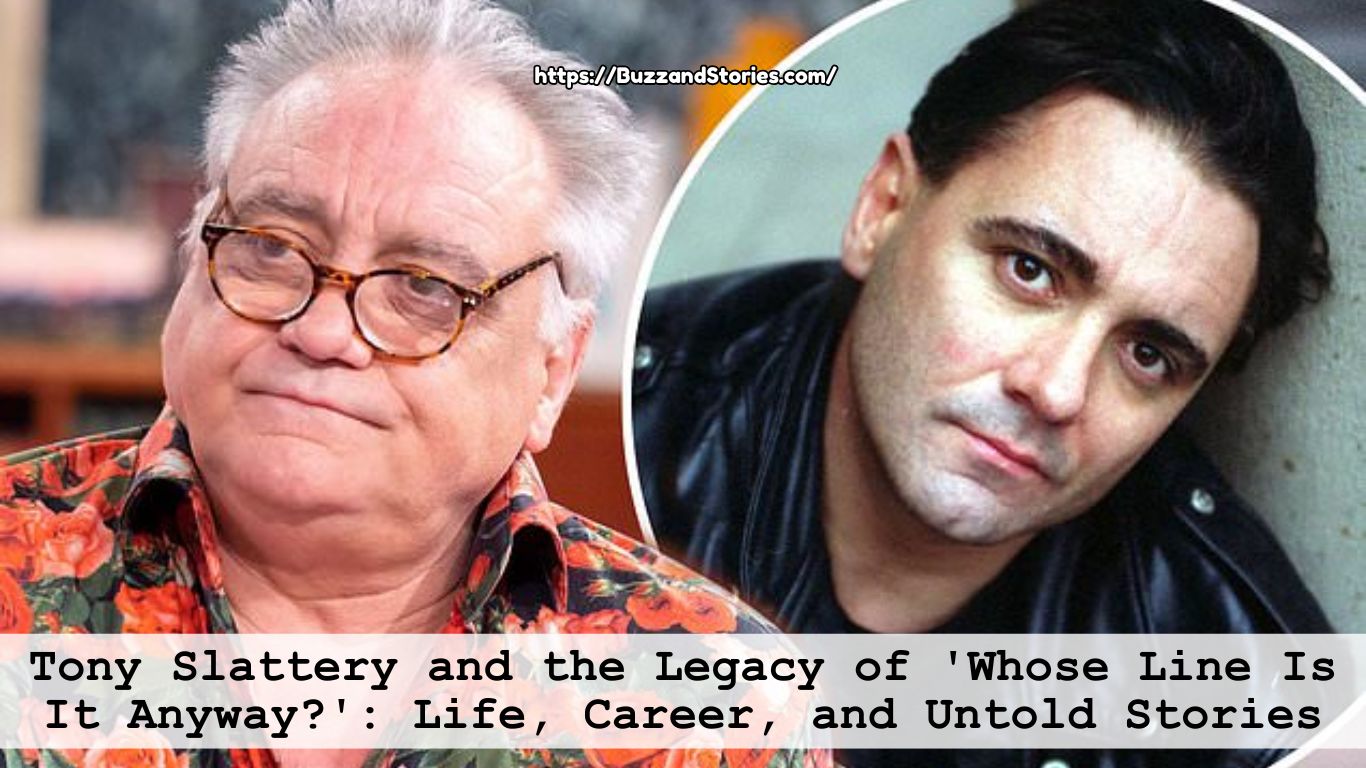Entertainment
Homo Cretinus: The Triumph of Stupidity
Published
3 months agoon

In a world brimming with remarkable achievements and astonishing advancements, the rise of Homo Cretinus a tongue-in-cheek term to describe modern stupidity is both ironic and deeply concerning. The phrase, “Homo Cretinus: The Triumph of Stupidity,” captures a phenomenon where ignorance, once a flaw to be corrected, is now often celebrated as a form of authenticity or resistance.
From social media platforms teeming with misinformation to anti-science rhetoric undermining decades of progress, the age of Homo Cretinus underscores the dangers of misplaced confidence in ignorance. This article explores the triumph of stupidity, its cultural roots, and its implications for society.
The Origins of Homo Cretinus
The term “Homo Cretinus” combines Latin to emphasize human folly. While humanity has always flirted with ignorance, modern tools like the internet have amplified the reach of stupidity. No longer confined to isolated pockets, foolish ideas now travel at the speed of light, finding echo chambers and validation along the way.
Historically, stupidity was often a result of lack of access to information. Today, ironically, it flourishes in the presence of too much information, where distinguishing fact from fiction becomes challenging. This overwhelming access fuels the rise of Homo Cretinus, a creature that rejects critical thinking in favor of easy narratives.
Hallmarks of the Triumph of Stupidity
- Anti-Intellectualism The disdain for expertise and intellectual rigor is a hallmark of the Homo Cretinus. In an era where “doing your own research” on complex topics like climate change and vaccines often means watching a YouTube video, expertise is devalued.
- Glorification of Opinion Over Facts The digital age allows everyone to have a platform, blurring the line between informed opinions and baseless claims. “My opinion is as valid as your evidence” has become a rallying cry for the modern-day ignorant.
- Meme Culture and Oversimplification Complex issues are reduced to memes, creating a generation that consumes bite-sized information devoid of nuance. Important debates are overshadowed by catchy slogans that prioritize virality over validity.
The Role of Social Media in the Rise of Homo Cretinus
Social media is both a blessing and a curse. On one hand, it democratizes access to information. On the other, it rewards sensationalism and emotional reactions over rational discourse. Platforms like Facebook, Twitter, and TikTok have become breeding grounds for conspiracy theories and pseudoscience.
Echo Chambers and Cognitive Bias
Algorithms reinforce existing beliefs by creating echo chambers where Homo Cretinus thrives. When misinformation is repeated often enough, it begins to feel like truth, further emboldening ignorance.
Consequences of Celebrating Stupidity

The triumph of stupidity is not without its consequences. From undermining democracy to threatening public health, the impact of Homo Cretinus is far-reaching and profound.
Erosion of Critical Thinking
Critical thinking is the cornerstone of progress, yet the celebration of stupidity erodes this skill. Instead of asking “Why?” or “How?”, Homo Cretinus prefers to accept the easiest explanation.
Undermining Science and Progress
From climate denial to vaccine hesitancy, the rejection of scientific consensus has real-world consequences. The celebration of ignorance slows down humanity’s collective progress and threatens the well-being of future generations.
How to Combat the Rise of Homo Cretinus
While the triumph of stupidity may seem overwhelming, it is not inevitable. Addressing the rise of Homo Cretinus requires effort from individuals, educators, and policymakers alike.
1. Foster Media Literacy
Teaching individuals to critically evaluate sources of information is essential. Media literacy programs should be implemented at all levels of education to equip people with tools to navigate the digital age.
2. Encourage Civil Discourse
The internet often feels like a battleground, but respectful discussions can counteract ignorance. Creating spaces for open and informed dialogue is crucial to challenging the reign of Homo Cretinus.
3. Value Expertise
Society must return to valuing expertise and evidence-based decision-making. Experts should be visible, accessible, and proactive in addressing misinformation.
The Future: Can Homo Cretinus Be Defeated?

While the triumph of stupidity feels overwhelming, history teaches us that human resilience and ingenuity often prevail. By prioritizing education, fostering curiosity, and embracing complexity, society can shift away from the era of Homo Cretinus.
The term “Homo Cretinus: The Triumph of Stupidity” serves as a warning, but it also offers an opportunity for reflection. Will humanity rise above its inclination toward ignorance, or will stupidity continue to triumph? The choice lies with us.
Final Thoughts
In an age where information is abundant but wisdom feels scarce, the rise of Homo Cretinus challenges us to rethink how we approach knowledge and truth. By acknowledging the problem and actively working toward solutions, humanity can overcome the triumph of stupidity and pave the way for a more enlightened future.
When is Easter 2025? Date, Traditions, and Global Celebrations Explained
FAQs
-
What is “Homo Cretinus: The Triumph of Stupidity”?
“Homo Cretinus: The Triumph of Stupidity” is a satirical term that critiques the growing prevalence and celebration of ignorance in modern society. It combines “Homo” (human) and “Cretinus” (foolish or dull-witted) to describe a figurative regression of humanity toward rejecting critical thinking, expertise, and evidence-based reasoning. The phrase suggests that in the modern age, stupidity has not only persisted but also been amplified and validated, creating a societal trend where foolishness often triumphs over intelligence and wisdom.
-
What does “Homo Cretinus” imply about humanity?
The term “Homo Cretinus” implies that parts of humanity have willingly abandoned intellectual rigor and rationality in favor of convenience, emotional satisfaction, and simplistic explanations. It highlights a paradox: in an age where knowledge is more accessible than ever, ignorance is increasingly chosen rather than imposed. It reflects humanity’s struggle with the complexities of information overload, cognitive bias, and the allure of misinformation.
-
How does “The Triumph of Stupidity” manifest in modern society?
“The Triumph of Stupidity” manifests in numerous ways, including:
Anti-intellectualism: A widespread distrust of experts and intellectuals, leading to the rejection of scientific consensus on critical issues like climate change or public health.
Misinformation: The rapid spread of falsehoods through social media and digital platforms, where emotional or sensational content often outweighs factual accuracy.
Echo Chambers: Algorithms that reinforce pre-existing beliefs, creating environments where dissenting opinions are ignored, and ignorance is amplified.
Oversimplification: A tendency to reduce complex issues to overly simplistic narratives, often through memes or slogans that prioritize entertainment over education. -
What are some real-world examples of this concept?
Some real-world examples of “Homo Cretinus: The Triumph of Stupidity” include:
Anti-vaccine movements: Despite overwhelming scientific evidence supporting the safety and efficacy of vaccines, misinformation has fueled hesitancy and outbreaks of preventable diseases.
Climate change denial: A rejection of scientific consensus on global warming, often driven by misinformation and political agendas.
Flat Earth theories: A resurgence of pseudoscientific beliefs that dismiss centuries of evidence and experimentation.
Social media echo chambers: Platforms like Facebook and Twitter amplifying conspiracy theories, such as QAnon or 5G health risks, through unchecked algorithms.
Populist rhetoric: Politicians exploiting anti-intellectual sentiments to gain support by demonizing experts and dismissing facts.
-
Five Million People Watched Me Empty My Dishwasher
It sounds surreal, doesn’t it? The thought of five million people tuning in to watch someone perform the mundane task of emptying a dishwasher. Yet, that’s exactly what happened to me. What began as a random upload on social media turned into a viral phenomenon, leaving me both amused and fascinated by the power of…
-
Instagram Restricts Search Results for ‘Democrats’
Recent reports have surfaced highlighting Instagram’s restriction of search results for the term “Democrats,” raising concerns over content moderation and platform bias. Users searching for this political term encountered limited results or were redirected to general information pages, sparking debate over the social media giant’s decision-making process regarding sensitive political content. This development has prompted…
-
Canada Sidesteps Trump’s Tariffs – At Least for Now
In a move that has temporarily shielded Canada’s economy, the country has managed to avoid being impacted by the latest round of tariffs announced by former U.S. President Donald Trump. While many of America’s traditional trading partners brace for the economic blowback of these measures, Canada has, for now, escaped the fray. However, the reprieve…
You may like
Entertainment
Tony Slattery and the Legacy of ‘Whose Line Is It Anyway?’: Life, Career, and Untold Stories
Published
1 month agoon
January 15, 2025By
Dan Harry
When you think of iconic figures in comedy, does Tony Slattery come to mind? For fans of the legendary Whose Line Is It Anyway?, he’s a name synonymous with wit, charm, and boundary-pushing improvisation. But beyond the infectious laughter he delivered on screen lies a story layered with personal triumphs, challenges, and a profound influence on comedy that few can rival.
What is it about Tony Slattery that continues to captivate audiences decades after his prime on the show? Is it his undeniable talent, his candor about life’s struggles, or the enduring legacy of his work? In this blog, we’ll take a closer look at his life, career, and untold stories, offering a window into the journey of a man who not only shaped a genre but also redefined resilience in the face of adversity.
Whether you’re here as a longtime admirer of his comedic genius or curious to learn about the man behind the laughter, this exploration promises to inspire, educate, and entertain. Let’s delve into the remarkable world of Tony Slattery, uncovering the highs and lows of his fascinating journey.
1. The Rise of Tony Slattery in Comedy
What makes a comedian truly unforgettable? For Tony Slattery, it wasn’t just his sharp wit and impeccable timing it was his ability to connect with audiences on a deeper level. Before becoming a household name on Whose Line Is It Anyway?, Tony carved a unique path in comedy and entertainment. Let’s dive into the journey that led him to the top.
Early Life and the Cambridge Connection
Tony Slattery’s comedic roots trace back to his time at Cambridge University, where he became a standout member of the prestigious Footlights group. Did you know that this very troupe has been a launchpad for countless comedy legends? Tony’s talent shone brightly, earning him accolades and opening doors to the entertainment world.
Breaking Into Television
Tony’s early days in British television showcased his versatility. From sketch shows to dramatic roles, he quickly became a familiar face on screen. But it wasn’t until he joined Whose Line Is It Anyway? that his star truly ascended.
Joining Whose Line Is It Anyway?: A Game-Changing Moment
When Tony stepped onto the set of Whose Line Is It Anyway?, he brought a unique blend of intelligence, humor, and unpredictability. His quick-thinking improvisations made him an audience favorite. What set him apart? Many would argue it was his fearless approach to comedy pushing boundaries while making every performance feel fresh and spontaneous.
- Key Highlights of His Time on the Show:
- Unforgettable comedic sketches and characters.
- Exceptional chemistry with fellow cast members.
- A natural ability to make even the toughest prompts hilarious.
Why His Comedy Resonated
Tony’s humor wasn’t just about making people laugh it was about making them think. He brought a rare authenticity to his performances, one that resonated with audiences long after the credits rolled.
With each step, Tony Slattery’s journey to fame illustrates the perfect blend of talent, hard work, and an innate ability to captivate an audience. In the next section, we’ll explore how his time on Whose Line Is It Anyway? became a defining chapter not just for his career, but for improv comedy as a whole. Stay tuned!
2. The Impact of ‘Whose Line Is It Anyway?’
When you think of shows that revolutionized comedy, Whose Line Is It Anyway? undoubtedly tops the list. And at its heart was Tony Slattery, whose unmatched wit and creativity elevated the show to iconic status. But how did this groundbreaking series shape the world of comedy and how did Tony leave an indelible mark on its legacy?
Redefining Improv Comedy
Before Whose Line, improv comedy was often confined to small stages and niche audiences. The show brought it to the mainstream, captivating viewers with its unpredictable humor and rapid-fire sketches. Tony Slattery was a driving force behind this transformation, pushing the boundaries of what improv could be.
A Dynamic Cast Member
Tony’s chemistry with the cast brought a unique energy to every episode. Whether he was riffing off Colin Mochrie or diving headfirst into a bizarre scenario, his quick wit never failed to steal the spotlight.
- Memorable Moments with Tony:
- Effortlessly handling outrageous prompts.
- Creating iconic characters on the fly.
- Collaborating seamlessly with other comedy greats.
Global and Cultural Influence
The success of Whose Line resonated far beyond its original airings. It inspired a new generation of comedians and sparked interest in improv as an art form. Tony’s performances became touchstones for aspiring entertainers looking to hone their craft.
Tony Slattery didn’t just entertain he inspired, innovated, and challenged the norms of comedy. In the next section, we’ll pull back the curtain and explore the hidden struggles he faced, proving that even the brightest stars have battles to fight.
3. The Hidden Struggles Behind the Laughter
Behind Tony Slattery’s brilliant smile and quick humor lay a deeply human story of resilience and vulnerability. While his performances on Whose Line Is It Anyway? brought joy to millions, Tony faced personal challenges that many never saw.
The Weight of Fame
Fame can be a double-edged sword, and Tony experienced its highs and lows. The pressures of constant performance and public scrutiny began to take a toll on his well-being, revealing the hidden cost of life in the spotlight.
A Battle with Mental Health
Tony has been candid about his struggles with bipolar disorder, shedding light on a condition that often remains misunderstood. His bravery in sharing his story has not only helped to destigmatize mental health conversations but also inspired countless individuals facing similar challenges.
- Key Moments in His Journey:
- Publicly addressing his mental health in interviews.
- Advocating for greater awareness and understanding.
- Seeking help and finding strength through his challenges.
Resilience and Reinvention
Despite the obstacles, Tony’s journey is one of remarkable resilience. From taking a step back from the limelight to exploring new creative outlets, he has shown that it’s never too late to rewrite your story.
Tony Slattery’s candidness has turned his struggles into a source of strength for others. In the next section, we’ll explore the man beyond the comedian the multi-talented artist, advocate, and enduring figure in entertainment.
4. Tony Slattery Beyond the Spotlight
Tony Slattery is more than just the comedian we know from Whose Line Is It Anyway?. Beyond the stage, he has embraced roles as an actor, advocate, and inspiration to many.
A Versatile Artist
From theater to television dramas, Tony’s range as an actor has been nothing short of impressive. His ability to adapt to different roles showcases the depth of his talent.
Championing Mental Health Awareness
Tony’s openness about his mental health journey has turned him into a powerful advocate. By sharing his experiences, he has helped normalize discussions around mental illness, proving that vulnerability can be a source of strength.
- Key Contributions:
- Speaking at mental health events and conferences.
- Engaging with fans who relate to his journey.
- Collaborating with organizations to raise awareness.
The Fans’ Perspective
For fans, Tony remains a beloved figure, not just for his humor but for his honesty. Stories abound of how his work has impacted lives, providing laughter in dark times and hope through his resilience.
In celebrating Tony Slattery, we celebrate a man who embodies creativity, courage, and compassion. As we move to the final section, we’ll reflect on the legacy of Whose Line Is It Anyway? and the enduring impact of Tony’s contributions.
5. The Enduring Legacy of Tony Slattery and ‘Whose Line’
What makes a legacy last? For Tony Slattery and Whose Line Is It Anyway?, it’s the timeless blend of humor, innovation, and authenticity.
The Show’s Lasting Appeal
Decades after its original run, Whose Line continues to attract fans new and old. Its unscripted format, combined with Tony’s quick-thinking brilliance, remains a benchmark for improv comedy.
Lessons from Tony’s Journey
Tony’s story is a testament to the power of resilience. From his meteoric rise to his personal struggles, his journey reminds us that success isn’t just about the spotlight it’s about finding strength through adversity.
Inspiring Future Generations
Tony’s influence can be seen in the comedians and improvisers who have followed in his footsteps. His performances remain a masterclass in creativity, and his advocacy work continues to inspire change.
As we look back on Tony Slattery’s incredible contributions, one thing is clear: his impact on comedy and beyond will be felt for generations. Whether through his performances or his advocacy, Tony’s legacy is one of laughter, courage, and connection.
What has happened to Tony Slattery?
Tony Slattery, a renowned actor and comedian from Whose Line Is It Anyway?, passed away on January 14, 2025, at the age of 65 due to a heart attack.
Whose Line Is It Anyway cast member dies in real life?
Several cast members have passed away over the years, including John Sessions, who was a regular on the UK version of the show. He died in November 2020 at the age of 67.
How old is Tony Slattery?
Tony Slattery was 65 years old at the time of his passing in January 2025.
Was Tony Slattery Irish?
While Tony Slattery was born in England, he was of Irish descent. His parents, Michael and Margaret Slattery, were Irish immigrants.
Is any part of Whose Line Is It Anyway scripted?
No, the performances on Whose Line Is It Anyway? are entirely improvised. However, the games and prompts are pre-planned to provide structure to the episodes.
What happened to Greg from Whose Line Is It Anyway?
Greg Proops remains active in comedy and entertainment. He continues performing as a stand-up comedian, acting, and hosting his podcast, “The Smartest Man in the Worl
Conclusion
Tony Slattery’s journey is a compelling tapestry of talent, resilience, and authenticity. From his unforgettable performances on Whose Line Is It Anyway? to his openness about life’s challenges, Tony has shown us what it means to truly connect with audiences, with art, and with oneself.
What makes his story so powerful? Perhaps it’s the reminder that behind every great performer is a deeply human experience one filled with both triumphs and trials. Tony’s legacy isn’t just about the laughter he brought into our lives but the conversations he sparked about mental health and vulnerability.
As fans, it’s a privilege to celebrate not just the comedian but the person behind the scenes. His contributions to comedy remain timeless, inspiring a new generation of performers to embrace creativity, courage, and honesty.
So, as you revisit classic episodes of Whose Line Is It Anyway? or explore Tony’s broader work, take a moment to appreciate the depth of his impact. His story reminds us all that life, much like improv, is about navigating the unexpected with grace, humor, and heart.
Tony Slattery’s legacy isn’t just etched in comedy history it’s alive in the laughter, resilience, and inspiration he continues to bring to the world.
FAQs
-
What is Tony Slattery famous for?
Tony Slattery is best known for his role as a cast member on the improvisational comedy show Whose Line Is It Anyway?. His quick wit and unique humor made him a fan favorite.
-
What happened to Tony Slattery in recent years?
In recent years, Tony has been open about his struggles with mental health, including bipolar disorder. His candidness has inspired many, shedding light on the challenges faced by performers.
-
Is Whose Line Is It Anyway? still popular today?
Yes, Whose Line Is It Anyway? remains widely popular, with reruns and the revival series keeping its legacy alive. The show’s timeless humor continues to attract new fans.
-
Who were Tony Slattery’s co-stars on Whose Line Is It Anyway?
Tony performed alongside notable comedians such as Colin Mochrie, Ryan Stiles, Greg Proops, and John Sessions, contributing to the show’s unforgettable ensemble cast.
-
Is Whose Line Is It Anyway? scripted?
No, the show is entirely unscripted, relying on the improvisational skills of its cast. However, the games and prompts are planned to provide structure to the performances.
-
Five Million People Watched Me Empty My Dishwasher
It sounds surreal, doesn’t it? The thought of five million people tuning in to watch someone perform the mundane task of emptying a dishwasher. Yet, that’s exactly what happened to me. What began as a random upload on social media turned into a viral phenomenon, leaving me both amused and fascinated by the power of…
-
Instagram Restricts Search Results for ‘Democrats’
Recent reports have surfaced highlighting Instagram’s restriction of search results for the term “Democrats,” raising concerns over content moderation and platform bias. Users searching for this political term encountered limited results or were redirected to general information pages, sparking debate over the social media giant’s decision-making process regarding sensitive political content. This development has prompted…
-
Canada Sidesteps Trump’s Tariffs – At Least for Now
In a move that has temporarily shielded Canada’s economy, the country has managed to avoid being impacted by the latest round of tariffs announced by former U.S. President Donald Trump. While many of America’s traditional trading partners brace for the economic blowback of these measures, Canada has, for now, escaped the fray. However, the reprieve…
Entertainment
You Want Me to Wait Until the Last Minute to Book My Hotel? Deal.
Published
1 month agoon
January 8, 2025
TL;DR: My company’s obsession with bureaucracy delayed my hotel booking, causing the price to skyrocket. They ended up paying more than double.
I work remotely for a small company (~100 employees), and my contract requires me to visit the office for a week, four times a year. The company is supposed to cover all travel expenses, including 100% of my hotel and gas/airfare costs. Usually, this is a routine trip to a pretty uneventful Midwestern city.
The last time I had to return to the office was in November. Around that time, the company had a financial audit. One major finding was a lack of controls on purchasing—managers and supervisors had been freely using company credit cards with a $1,500 limit, no purchase orders required.
Post-audit, the accounting team became obsessed with implementing purchase orders for everything. No matter what the situation or urgency was, if there wasn’t an approved purchase order, no transaction could be made. This change came into effect just as I was trying to book my hotel for the November trip.
Typically, I have flexibility in choosing when to go onsite, but this time my CEO and CFO specifically requested I come during a particular week to support the launch of a strategic planning initiative. So, I submitted a purchase order to book my hotel in early October. The cost at the time was $550 for four nights.
Weeks passed, and I heard nothing back. By mid-October, I realized I still hadn’t booked my room, so I checked again. The cost had jumped to $700, and availability was shrinking fast because of a concert and a big college sports event happening that same week. I emailed accounting to emphasize the urgency, explaining that prices were increasing and rooms were disappearing. Their response? A curt email saying that other purchase orders had higher priority and mine would be addressed when they got to it.
Fine. I waited, checking prices regularly. I sent weekly reminders about the rising costs and dwindling availability but got radio silence in return. A week before my trip, I sent another email, this time including the CFO, warning that if I didn’t book a room that day, I might not be able to make the trip at all.
Thirty minutes later, I got a terse reply: “You are authorized to reserve a hotel room for 4 nights.”
By then, the $550 room had skyrocketed to $1,200. I booked it, uploaded my receipt to the company’s expense system, and moved on.
Fast forward to last week: I submitted my expense report, including the $1,200 hotel stay. Today, the CFO called me in a rage, demanding to know what kind of luxury hotel I stayed at and why it cost so much. I calmly forwarded the original purchase order request and every email I had sent about the rising prices.
There was silence on the other end of the line before he muttered, “For fuck’s sake,” and hung up.
By the end of the day, all supervisors received an email announcing that the purchase order system was being suspended until the company could figure out how to manage it better.
I don’t know if I feel victorious or just exhausted. Either way, I’m definitely booking early next time.
Confessions
The Baby She Threatened to “Strangle” Was My Sister
Published
2 months agoon
January 3, 2025
A couple of years ago, my family and I went on a trip. I have two younger sisters who were just 1 and 3 years old at the time. There’s a 15-year age gap between me and the youngest. On the flight back home, my parents and sisters were seated in one row, while I sat in the window seat directly across from them. Between us were two older women who had no idea we were related.
The flight was rough. My baby sister struggled and cried a lot. Understandably, it was frustrating—it’s no one’s favorite situation to be stuck on a plane with a crying baby. Things got so bad that the flight attendants started handing out earplugs. Most of the passengers around us either ignored it or stayed polite, but not the women seated next to me.
One of them started complaining loudly to her friend about the noise. At first, I stayed quiet. I figured it wasn’t worth getting involved—it was a frustrating situation, after all. But then she crossed a major line. She turned to her friend and said, “Can you go over and strangle that baby?” She then continued to talk about wanting to physically hurt her.
That’s when I decided enough was enough. Joking—or even hinting—about hurting a one-year-old was far beyond acceptable.
When we landed, my sister had calmed down and was in a cheerful mood. Since we were seated near the back of the plane, it took a while for us to deplane. This gave me the perfect opportunity to make a point. I started chatting with my family and then asked to hold my baby sister. I scooped her up, propped her on my hip, and began playing with her—right in front of the two women.
The look on the woman’s face when she realized the “stranger” she had been complaining next to was actually the baby’s family member? Absolutely priceless. Her eyes widened, and she immediately went silent. Her friend, who had complained less, awkwardly tried to make small talk, saying how “cute” my sister was. We stood there for a few minutes, and when it was finally our row’s turn, the two women rushed off the plane as quickly as they could.
I saw them again at baggage claim but ignored them, focusing on keeping my sister entertained. At one point, while I was within earshot and my sister was looking in their direction, I calmly told her, “It’s okay. I won’t let her hurt you.” That was all it took—the woman turned red and moved to the far side of the area.
That little moment was all I needed to feel like I’d stood up for my sister. No one gets away with physically threatening a one-year-old, even if it’s just words.

Five Million People Watched Me Empty My Dishwasher

Instagram Restricts Search Results for ‘Democrats’

Canada Sidesteps Trump’s Tariffs – At Least for Now

Ukrainian Army Psychiatrist Arrested on $1 Million Corruption Charge

South Korean President Denies Involvement in Lawmakers’ Arrests

7 Fashion Accessory Mistakes You’re Probably Making & How to Fix Them

The Future of Sports: How Esports and Technology Are Changing the Game in 2024

Athleisure Gone Wrong: When Casual Meets Messy
Can You Mix Premium and Regular Gas? A Comprehensive Guide
Can You Receive Disability and Alimony at the Same Time?
Trending
-
Fashion4 months ago
7 Fashion Accessory Mistakes You’re Probably Making & How to Fix Them
-
Sports5 months ago
The Future of Sports: How Esports and Technology Are Changing the Game in 2024
-
Fashion4 months ago
Athleisure Gone Wrong: When Casual Meets Messy
-
Learning3 months ago
Can You Mix Premium and Regular Gas? A Comprehensive Guide
-
News3 months ago
Can You Receive Disability and Alimony at the Same Time?
-
News4 months ago
What Happened to Indila? Exploring Why the Iconic Singer Stopped Singing
-
Technology5 months ago
What is my IP Address ? Everything You Need to Know About IP Addresses.
-
Hot News2 months ago
Fierce Waves Pound California’s Coastline, Threatening Iconic Piers











